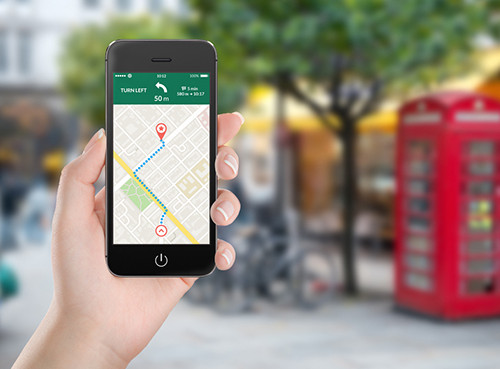When you ask most marketers to incorporate location and mobile into their marketing plans to default is often how do I bombard the consumer with an offer if they are remotely near a store or product. Sadly what this creates is a lot of noise and ads that are neither relevant nor wanted. As marketers we need to move beyond treating people like robots and more treating consumers as people. Use the location information to help them solve problems and have better interactions with a brand.
If you are one of the many people that believe that digital is making the world smaller you may be forgiven for overlooking the importance of location data. Afterall, why would the physical location of somebody matter when as a brand marketer you can engage with them on any device, anywhere? For me, digital is all about context and where somebody is gives you a great idea of what they’re doing and what kind of engagement they will be happy to receive. Location data is the key to making sure that brands are sending relevant content to their customers.
According to a report by PageFair last year, 150 million people have downloaded an adblocking plugin for their browser. This trend has made marketers realise that subjecting people to stream upon stream of irrelevant content is not good for anybody. Brands now have to realise that people are more receptive to relevant content and knowing where a person is has a huge bearing on what they actually want to receive. For example, nobody is going to want to watch a three minute movie trailer during a 30 second walk that they always make at 9:30am between their office and local coffee shop or if that commute walks you past a car dealership does not mean you are in market for a car.
The data is already out there. Smartphones track pretty much everything and it’s all available for a price. Brands have the ability to know that Joe Bloggs shops at a supermarket on his way from the gym to his house every Thursday at 6:45pm. Perhaps this might be a good time to send him a push notification through your supermarket’s app to let him know that chicken breasts (which he has purchased before) are buy one get one free? I think most people would agree that this is going to see a much better ROI than sending him an email when he’s at work on Monday, which will go right into the rubbish bin or worse earn an unsubscribe.
Aside from the obvious advantages for brands, there are also benefits for almost everybody. If brands put the experience of users first, the internet will become less spammy and disjointed, and will help to make the web a place for people to interact, collaborate and enjoy. Creating a culture where marketers add to the conversation, rather than force an irrelevant sales message onto people, will help brands to create better digital experiences that will regain online trust and get people engaging again.
I believe that the biggest obstacle in the way of full contextualisation using location data is patience and the pressure to deliver immediate results. The reason that brands issue so many ads to so many people is that you can guarantee short term results. Nobody is saying that if you spend on digital advertising that you get nothing in return. But as more and more users switch on the adblockers this ROI is only ever going to get smaller and smaller. There are obviously a lot of coincidental parameters associated with location contextualisation but when it works, it is the most effective and unobtrusive way of engaging with individual customers. Think of using location data as enhancing the customer experience or service NOT just going for the short term sale.
Marketers are internet users and consumers as well. We all want to enjoy the internet and our smart devices with a minimal amount of unwanted distraction. We are currently part of the problem but we have the power to be the solution. Instead of thinking of new ways to get around or make adblocking software illegal, why don’t we try to put web users first? It might impact your short term ad results, and clearly not all brands are going to be brave enough to put all of their focus on only serving relevant content, but the long term payoff is well worth it.
The first step to making this all possible is by using a customer’s location to make engagement decisions that map back to customer purchase journey. The data’s there, the technology is there and the content is there. It’s just a case of tying this up into an intelligent system, and there’s tons of agencies that can do that for you.






